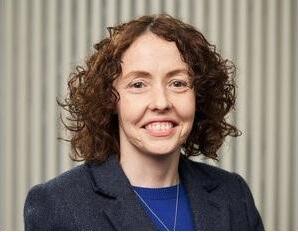
For International Women's Day 2022, Legal Director of APPEAL, Emma Torr, explains the key patterns and trends.
I work as an in house barrister as the Legal Director of APPEAL, a charity law practice that represents individuals who have been wrongly convicted and/or unfairly sentenced.
APPEAL recognises that there are specific issues relating to women who are prosecuted and convicted. Our Women’s Justice Initiative represents those who are the most vulnerable in the justice system; 60% of women in prison have experienced domestic abuse and 70% suffer with mental health issues. Many of these women do not need to be in prison. More than 80% of the women in prison are there for low level, non-violent offences and about half of the women in prison are there for theft.
Often, these issues are not identified at the material time. There may be delayed reporting of abuse or language or mental health challenges that mean these issues are not raised. Research undertaken by APPEAL in conjunction with the Griffin’s Society illustrates that women face further barriers in seeking to overturn unsafe convictions or unfair sentences in the Court of Appeal (Criminal Division). Appeals to this Court have dropped by 36% from 2011 to 2019, and there is evidence to suggest that women may face particular barriers in challenging convictions and sentences. These barriers included gendered factors, such as an under-confidence among women to take on appeals and the prioritisation of recovery from trauma and mental illness on women’s arrival in custody, meaning that the 28-day time-frame for lodging an appeal were exceeded. Further external barriers include a lack of access to information about the appeal system, varying standards of advice offered by legal professionals and a lack of public funding for such work. The findings were that women may constitute a disproportionately small proportion of those making appeals to overturn convictions or sentences for criminal offences.
As well as taking cases to the Court of Appeal we also advocate for women who have been criminalised for non-payment of debt, in particular TV Licensing. There is clear gender disparity here, in 2018, 72% of all prosecutions for licence fee non-payment were against women, despite women being half of licence holders. It is the most common offence for which women are prosecuted, accounting for an astonishing 30% of all female prosecutions. Following successful challenge to a TV licensing prosecution, the BBC agreed to undertake a gender equality review and we hope it will signal significant change in prosecution practices to protect vulnerable women.
IWD represents a time to reflect upon these disparities and serves as an important reminder that the disadvantages faced by women in society generally have significant ramifications in the criminal justice system as well as elsewhere.
Emma Torr is APPEAL’S Legal Director and in-house barrister.
Access more information and blogs about Women in Law.